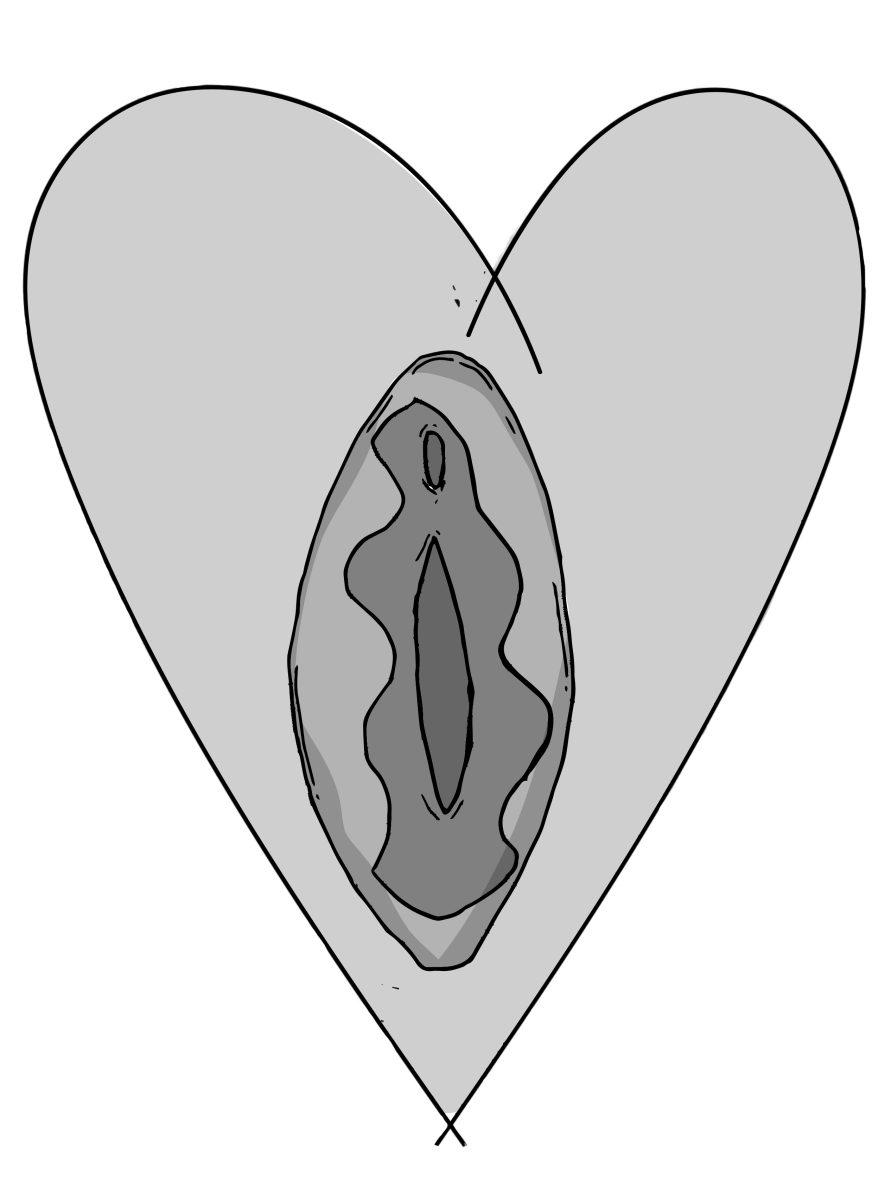
Illustration by Nathan Doyle
“Ugh, ugh! Oh my god, don’t stop!”
We didn’t stop.
No one in the room stopped.
You could hear laughter roaring from the crowd as San Jose State public relations freshman Kendria Cruz dramatically moans as part of her monologue, “The Woman Who Loved to Make Vaginas Happy,” in the “The Vagina Monologues.”
The episodic play, hosted by the Gender Equity Center, captivated an audience of about 100 people in the Student Union Theater on Thursday.
It was a fundraising opportunity for the nonprofit organization Asian Americans for Community Involvement and the support services center Young Women’s Christian Association Rape Crisis Center.
Written in the late 1990s by feminist activist Eve Ensler and adapted by SJSU chemistry graduate student and director Liridona Leti, “The Vagina Monologues” encompasses female characters from all walks of life to discuss their experiences as women in a patriarchal society.
The performances sporadically and unusually switch from being light-hearted to intense, all while maintaining an unmoderated rhythm.
This type of raw and unfiltered narrative opened up a conversation with the audience about sex and the awkward, yet extremely alarming experiences many women face.
“I think it’s fascinating, and also, in a way, a little bit sad and frustrating that issues that were affecting women throughout that time are still affecting us now,” business senior Floriberta Sario said before attending the show in support of her friends.
Though all the actresses were from various backgrounds to allude to the diversity of women characters in the play, it was a bit concerning that the audience wasn’t all too gender diverse, as the male-to-female ratio was extremely uneven.
Sitting among women provided us a sense of comfort in the theater, we also felt that the lack of male attendance and investment in female issues was alarming.
Earlier monologues exposed the fact that society puts male pleasure first and female pleasure last.
Other monologues talked about sex topics including pubic hair and sexual identities.
The more intense monologues focused on the fact that sexual harassment and domestic abuse toward women is an inhumane and barbaric problem that consistently happens in society.
One monologue followed a young girl’s diary, including entries that ranged from her masturbating to screaming at her mom to getting raped by her father’s friend as a child.
The polarizing entries took us on an emotional roller coaster with a speed that stripped us naked and forced us to face the bare realities of our gender.
We felt absurdity, pain, terror, but most importantly, sympathy.
“Things that happen to you that are traumatic, they stay with you and they carry with you, and they shape your experiences,” Charlotte Theriault, actress and forensic chemistry senior, said.
Just as Theriault related to her fictional character through shared bisexual orientation and sexual harassment experience, we too began to evaluate our own experiences with being sexually preyed upon throughout our lives.
We began to feel unified and less alone in our discomfort, yet simultaneously angry at the world, demanding change.
Each monologue that amusingly confessed the awkwardness of female sexuality gave us an equally emotionally intense monologue and comedic delivery that brought us to the verge of tears.
“The Vagina Monologues” evinced the crude reality of how innocence can be exploited.
So, when one of the actresses started walking around the theater urging audience members to yell “cunt” as a way to destigmatize the word, it was no doubt that we felt waves of embarrassment and disturbance clamor into the pits of our stomachs.
“Cunt is just another word and reclaiming it is saying, like, ‘This is ours’ or ‘This is my
word,’ ” Leti said.
Though we understood the purpose of this exercise and smiled at the laughter it stirred up from the audience, it was definitely a startling experience sitting in a theater with the word “cunt” continually shocking our eardrums.
With a trail of “pussy pops” and chocolate shaped vaginas leading into the theater, “The Vagina Monologues” was a hilariously uncomfortable yet socially powerful play performed by an extremely talented and diverse set of actresses.
The powerful performances and moving monologues left us wishing it wasn’t over but also searching for the nearest person to confide in about our similar experiences.